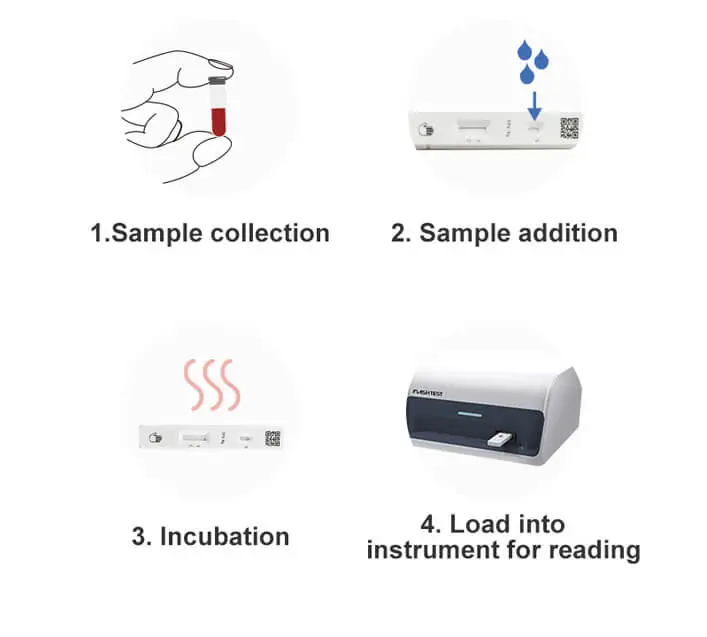- +1-707-722-7066
- care@flashtestbio.com
English

FIA for canines is a laboratory technique used to detect and measure specific substances in canine blood samples. It utilizes fluorescently labeled antibodies that bind to target molecules, allowing for their identification and quantification. FIA is commonly used for various diagnostic tests, including hormone levels, antibodies, and viral or bacterial antigens in dogs.
Canine FIA (Canine Immunodeficiency Virus Infection Assay) is essential for diagnosing and managing canine immunodeficiency virus (CIV) infection.
CIV is a viral infection that affects dogs, leading to immune suppression and increased vulnerability to other diseases.
Performing Canine FIA allows veterinarians to identify infected dogs early, enabling timely treatment and preventing the spread of the virus.
Regular testing is crucial for dogs in high-risk environments, such as boarding facilities and dog shows, to minimize the risk of CIV transmission.
Canine FIA screening helps maintain the overall health and well-being of dogs, ensuring appropriate care for infected animals and preventing outbreaks in the canine population.

Get In Touch With Us Now!
For any inquiries or queries regarding our animal lab test kits and in vitro diagnostic devices, please don't hesitate to reach out to us directly or fill out our online form. We are here to assist you and provide prompt responses to your questions.

Tel:
+1-707-722-7066Email:
care@flashtestbio.comAdd:
Blk A4 - F2, Liyuan Development Zone, Binhu District, Wuxi, China